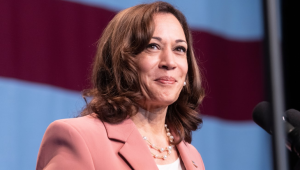The youngest leader of the United Kingdom in two centuries, most importantly its first prime minister of South Asian heritage and a Hindu, Rishi Sunak says that accepting the role of UK PM was his dharma – “about doing the things that were expected of you and trying to do the right thing.” The Conservative leader is well versed in economics, and UK citizens appreciated his role as the finance minister, and at this moment of the financial crisis, he is an excellent choice to manage the country’s economy and make a stunning comeback. As the Prime Minister of the UK Rishi has to tame soaring inflation, make the sluggish UK economy grow, ease pressure on its overburdened healthcare system, and “restore the integrity back into politics”.
What it takes to make the cut is right decisions and risk taking ability, which the 42-year-old world leader is known for. He quit a dream career as an investment banker in Goldman Sachs to go for an MBA and then employment. He also knew that following his faith publically may make him a target for western media, but did not change his stand. He has always stood up for what he thought to be correct. He took a stand for his traditional and religious values, and was strong and determined about his economic policies and ideas.
HUMBLE ROOTS, GREAT EDUCATION
Rishi Sunak was born in Southampton on May 12, 1980, to Indian immigrants, with roots in Punjab and East Africa. They met and married after their families migrated in the 1960s to Southampton in southern England. Rishi’s father became a general practitioner for the National Health Service. His mother, a pharmacist, owned and operated a small pharmacy, for which Rishi, the eldest of their three children, would eventually keep the books. Later, during his political career, he would underline this fact to relate his experiences working in the family business and the values he gained from them with those of Conservative Party idol Margaret Thatcher, who was the daughter of a grocer.
Rishi was fortunate to embark on a path travelled by the most privileged in society. He grew up watching his parents serve the local Indian community, and wanted to make that same positive difference to people as their Member of Parliament. He was first elected to the UK parliament in 2015 and was re-elected in 2017 and 2019. A game-changer in his life was good education. Rishi’s parents worked hard to give their children the best of education. Their sacrifices enabled him to attend private school at Winchester College, where he became the head boy. He went on to study philosophy, politics, and economics at Lincoln College, Oxford, where he was president of the Oxford Trading and Investment Society that helped students with opportunities to learn about financial markets and global trading. While at Oxford, Rishi also had an internship at the headquarters of the Conservative Party. During his student life, he volunteered his time to education programmes that unfolded opportunities. In his summer vacations, he also waited tables at a Southampton Indian restaurant. Today, as a politician, he aims to ensure that every individual gets the benefit of good education.
After graduating from Oxford in 2001, Rishi became an analyst for Goldman Sachs and worked for the investment banking company until 2004. He quit the job and pursued an MBA at Stanford University as a Fulbright scholar. At the Stanford University, he met his future wife, Akshata Murthy, daughter of the Indian billionaire and cofounder of technology giant Infosys, Narayana Murthy. After Stanford, he began a successful business career that included stints at Goldman Sachs and as a hedge fund manager.
In a successful business career, Rishi co-founded a large investment firm, working with companies from Silicon Valley in the US to Bengaluru in India. He used this experience to help small and entrepreneurial UK companies grow successfully. From working in his mother’s small chemist shop to building large businesses, he realised how policies could support free enterprise and innovation to ensure future growth.
MAKING OF A WORLD LEADER
By the time Rishi switched to politics in his early 30s, he was already wealthy on his own. In 2010, he began working for the Conservative Party. During this period, he also became involved with Policy Exchange, a leading Conservative think tank, for which he became head of the Black and Minority Ethnic (BME) Research Unit in 2014. In the same year, he was chosen as the Conservative Party’s candidate for the House of Commons from Richmond in North Yorkshire, a safe Conservative seat in the north of England long represented by one-time party leader William Hague.
In his first speech in the UK Parliament, Rishi shared a story from the days of his first campaign. It is about a farmer in Yorkshire who remarked, when Rishi was introduced to him as “the New William Hague”. “Ah yes Haguey! Good bloke. I like him. Bit pale, though. This one’s got a nice tan.” William Hague himself praises him as “down to earth – a non-ideological Conservative”.
In May 2015, Rishi was elected by a commanding majority to the Parliament from Richmond, North Yorkshire, a seat he still holds. He joined the “leave” camp on the issue of Brexit, which he said would make the United Kingdom “freer, fairer, and more prosperous.” He was re-elected to Parliament in 2017 and 2019, and he voted three times in favour of Prime Minister Theresa May’s Brexit plans. In January 2018, he entered Government service as the Minister for Local Government, became Chief Secretary to the Treasury in July 2019, and was appointed Chancellor of the Exchequer in February 2020 and stayed on this position till July 2022.
Almost immediately after becoming the Chancellor of the Exchequer, Rishi faced the challenges posed by the onset of the COVID-19 global pandemic. As the British economy was clobbered by the shutdowns to stem the spread of the virus, his office tried to offset about £330 billion ($400 billion) in emergency funds for businesses and salary subsidies for workers to retain talent and ease the burden of the lockdown on people and businesses. His rescue programs became widely popular, helping him become a welcome face of the government at daily media briefings.
MAN OF THE MOMENT
Rishi Sunak resigned from the cabinet on July 5, 2022, and declared his intention to replace then UK PM Boris Johnson as leader. He lost to Foreign Secretary Liz Truss for the top job, which she could not sustain beyond 45 days, and paved the way for Rishi to become the first person of colour and first Hindu to lead Britain.
The journey as the UK PM so far has been a mixed bag for Rishi, but he is doing better than his predecessors, say observers. “Since Sunak has taken over, the polls have stabilised and the Labour lead has narrowed…,” said British polling agency YouGov on his 100 days in the office. On his personal rating, the agency assessed, “The Prime Minister’s personal favourability rating is comparatively better than those of his predecessors, sitting at -29 compared to Boris Johnson’s final score of -40 and Truss’s rock bottom -70.”















